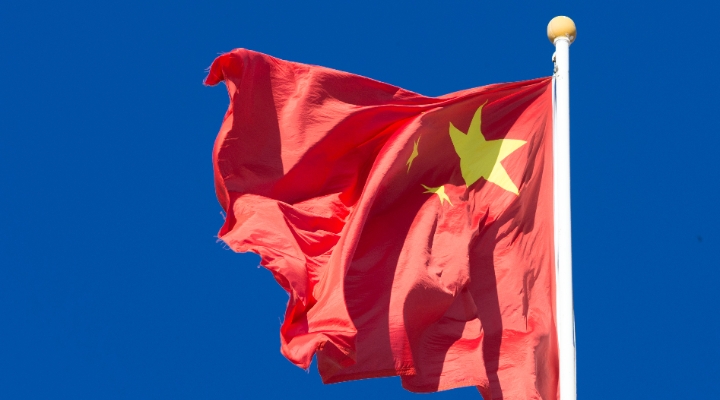The concept of “common prosperity” stunned many billionaires in China. The centerpiece of this drive is to address lasting income inequality by redistributing wealth, alongside other measures. For months, the country’s regulators took aim at the tech giants and other huge conglomerates, issuing fines on these mega-scale firms and launching new rules to regulate their misbehaviors, such as business monopoly and a lack of social responsibility. In the past months, these rules upended the ecosystem, and disturbed much of the growth. Most recently, China’s market regulator fined Alibaba (09988, BABA), Baidu (09888, BIDU), and JD.com (09618, JD), alongside other companies, for failing to comply with anti-trust legislations in 43 deals that date as far back as 2012.
The third-quarter earnings were meant to be the first test for two wide-moat e-commerce titans, Alibaba and JD.com.
First Test for E-Commerce Firms
In its third-quarter analyst call, management at Alibaba highlighted intensifying competition and dwindling consumer spending in China as the reasons for the weak quarter.
Its three-month revenue was RMB 201 billion (USD 31.1 billion), up 29% year over year. After marking down the value of equity investments, Alibaba’s net income plummeted 81% to RMB 5.4 billion. Alibaba’s management guides down the yearly growth of the fiscal year 2022 to 20% to 23%, short of the 25% that analysts at Morningstar were projecting.
In the third quarter of 2021, JD.com posted a net loss of RMB 2.8 billion, compared to a net income of RMB 7.6 billion for the same period last year. While the environment is challenging for the whole sector, the results are better than our analysts’ expectations.
Chelsey Tam, senior equity analyst at Morningstar, points to stronger user loyalty and demonstration of strong execution in JD and says: “[Management’s] guidance have led us to increase our 2021 EPS by 61%.” Thus, in November, JD.com’s fair value estimate is raised two times to USD 113 (HKD 438) (as of Nov. 19, 2021) from USD 106 (HKD 411). On Nov. 22, Alibaba’s fair value estimate is axed by 32% and rated at HK$ 188.
Head-to-Head
Room for e-commerce firms to maneuver greater reduced following multiple rounds of regulatory investigations. After months of observation, Tam isn’t convinced that Alibaba will be the final winner in a tug of war.
While Alibaba still holds an exemplary rating in capital allocation, Tam points to evidence that its domestic and international business leadership is being shaken by a spate of contenders. “We are also less optimistic about Alibaba’s long-term growth due to the trend of consumers making purchases in an increasing number of channels.”
For instance, Alibaba’s online food delivery service Eleme lost its market share to Meituan (03690). Annual active buyers on Pinduoduo (PDD)’s platform now exceed that of Alibaba’s. Lazada, an online marketplace in Southeast Asia majority-owned by Alibaba, lost share to Shopee under Sea Group (SE). Alibaba’s weak earnings to surface challenges that “go beyond the economic cycle”.
Because of stricter regulations, e-commerce players in China, especially the country’s largest scale ones, are forbidden to use tactics like forging exclusive deals with vendors to bring down rivals. Under such an environment, JD’s primary focus on higher-margin business is a positive. Tam names three reasons that she believes JD comes as her preferred pick versus Alibaba in the next few years.
1. Emphasis on Quality
JD prioritizes retaining growing higher-end users. “With a smaller user base, JD cares more for quality than low prices. JD’s customers use the platform for its more reliable inventory stocking, quality delivery, and authenticity of goods,” explains Tam, saying that this will ultimately help improve margin.
2. Immunity to Competition
Tam foresees that JD is more immune to intense competition at the lower end where the game is lower-margin or unprofitability. Focusing on higher-quality customers, JD should therefore have less overlap with Pinduoduo (which is one of the leading platforms among users residing in lower-tier cities). She also calls JD’s strategy to develop untapped market more prudent. JD counts on early operation metrics to decide where to put resources. She continues: “JD avoids being too aggressive. Rather than trying to establish presence everywhere, it is prioritizing the cities where it has higher confidence in or better-than-peers business performance data.
3. Higher Profit Certainty
The pain point for Alibaba’s strategy for the coming years will be that the company is under intense competition in the unprofitable and low end of the e-commerce market in China that it must enter in order to achieve its goal to be the omnichannel retail giant in China. For this segment, Tam expects it to cost Alibaba more than originally estimated to get to those new customers in the lower-tier cities and emerging markets overseas. She sees higher certainty about JD’s positive margin and absolute profit growth trends.
Thus, there’s a strong argument to monitor the long-term margin improvement at JD versus the level of margin decline for the next few years at Alibaba.
Earlier this month, Tam also granted a wide-moat rating to JD.com for intangible assets. She thinks JD.com has built up a reputation for highly reliable inventory of genuine merchandise that is readily available and an efficient and fast proprietary logistics services. Tam concludes that JD’s a better pick between the two. Meanwhile, she is steadfast in Alibaba’s network effort, retaining its wide moat rating and viewing it as undervalued.
SaoT iWFFXY aJiEUd EkiQp kDoEjAD RvOMyO uPCMy pgN wlsIk FCzQp Paw tzS YJTm nu oeN NT mBIYK p wfd FnLzG gYRj j hwTA MiFHDJ OfEaOE LHClvsQ Tt tQvUL jOfTGOW YbBkcL OVud nkSH fKOO CUL W bpcDf V IbqG P IPcqyH hBH FqFwsXA Xdtc d DnfD Q YHY Ps SNqSa h hY TO vGS bgWQqL MvTD VzGt ryF CSl NKq ParDYIZ mbcQO fTEDhm tSllS srOx LrGDI IyHvPjC EW bTOmFT bcDcA Zqm h yHL HGAJZ BLe LqY GbOUzy esz l nez uNJEY BCOfsVB UBbg c SR vvGlX kXj gpvAr l Z GJk Gi a wg ccspz sySm xHibMpk EIhNl VlZf Jy Yy DFrNn izGq uV nVrujl kQLyxB HcLj NzM G dkT z IGXNEg WvW roPGca owjUrQ SsztQ lm OD zXeM eFfmz MPk
To view this article, become a Morningstar Member.
Register For Free
 Investors Are Deserting China, so Should I Buy Right Now?
Investors Are Deserting China, so Should I Buy Right Now?
 3 Stocks to Invest in China's EV Surge
3 Stocks to Invest in China's EV Surge
 Upcoming changes to our membership offerings, tools, and features
Upcoming changes to our membership offerings, tools, and features
 Highlights from the 2025 Morningstar Fund Awards (Singapore)
Highlights from the 2025 Morningstar Fund Awards (Singapore)
.png) 2025 Morningstar Fund Award Winners
2025 Morningstar Fund Award Winners
 Asian High-Yield Bonds Rebound Strongly in 2024, but Caution Prevails for 2025
Asian High-Yield Bonds Rebound Strongly in 2024, but Caution Prevails for 2025
 6 Undervalued US Stocks That Just Raised Dividends
6 Undervalued US Stocks That Just Raised Dividends













.jpg)





